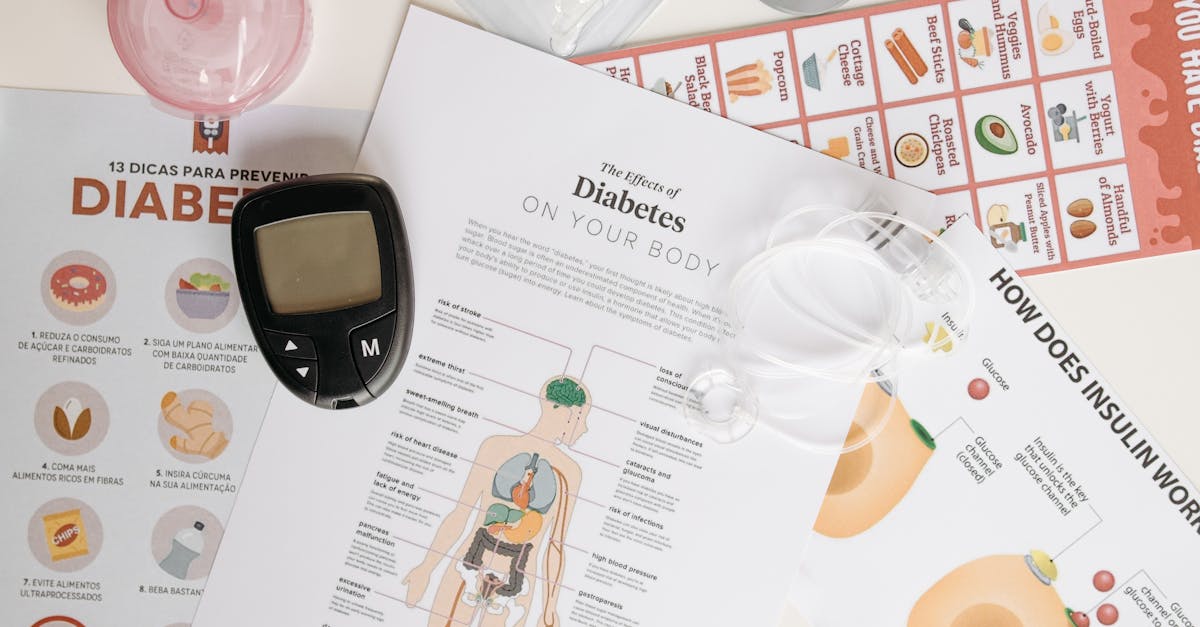Essential Dietary Plans for Managing Diabetes
Introduction to Diabetes and Diet
Diabetes is a chronic condition that affects millions worldwide and necessitates a balanced dietary approach to maintain optimal health. A well-structured meal plan can significantly influence blood sugar levels, energy, and overall well-being. Incorporating healthy foods like whole grains, lean proteins, and vegetables can minimize complications associated with diabetes. Understanding the role of carbohydrates, fats, and proteins in your diet is crucial for effective management. A personalized meal plan can help manage insulin levels and prevent spikes in blood sugar. This article will explore various dietary plans that can support diabetes management.
Advertisement
Understanding Carbohydrates
Carbohydrates have a direct impact on blood sugar levels, making their management vital for individuals with diabetes. They are divided into three main categories: sugars, starches, and fibers. Not all carbohydrates are created equal—complex carbs like whole grains release energy more slowly, while simple sugars can cause rapid spikes in blood sugar. Fiber-rich foods, such as legumes, fruits, and vegetables, can help stabilize blood sugar levels by slowing down digestion. It is essential to monitor carbohydrate intake carefully, opting for choices that maintain balanced blood sugar levels rather than causing sudden increases.
Advertisement
Incorporating Lean Proteins
Proteins play a vital role in maintaining muscle mass and controlling hunger, which can help in weight management—a crucial aspect of diabetes care. Including lean sources like chicken, fish, tofu, and beans can provide essential nutrients without adding excessive saturated fats. Proteins have a minimal effect on blood sugar, making them ideal for keeping energy levels stable throughout the day. It's important to diversify protein sources to ensure a comprehensive intake of amino acids and other nutrients. This diversification can also support heart health, an important consideration for individuals with diabetes.
Advertisement
Balancing Fats Wisely
Fats are an essential part of a balanced diet, but choosing the right type matters immensely, especially for those managing diabetes. Unsaturated fats, present in foods like avocados, nuts, and olive oil, support heart health and provide sustained energy. Trans fats and excessive saturated fats, often found in processed foods, can increase insulin resistance, complicating diabetes management. Incorporating healthy fats in moderation can improve insulin sensitivity and reduce inflammation. Portion control is key, as fats can be calorie-dense, and their overconsumption can lead to weight gain.
Advertisement
Timing and Portion Control
When it comes to diabetes, when you eat can be as important as what you eat. Regular meal timing helps maintain consistent blood sugar levels and reduces the risk of hypoglycemia. Eating smaller, frequent meals helps in managing hunger and keeping blood glucose stable. Portion control is important to avoid overeating, which can lead to weight gain and insulin resistance. Using tools like measuring cups or food weighing scales can help in maintaining appropriate portion sizes. Creating a meal schedule and sticking to it can streamline blood sugar management efforts.
Advertisement
Importance of Whole Foods
Whole foods, those that are unprocessed or minimally processed, represent an ideal choice for a diabetes-friendly diet. Foods like whole grains, fresh produce, and lean meats provide essential nutrients that processed alternatives often lack. Whole foods are typically richer in fiber, which aids digestion and maintains proper blood sugar control. Including plenty of colorful vegetables and fruits ensures a rich supply of vitamins and antioxidants. The natural sugars present in whole fruits are better managed by the body than added or refined sugars found in processed foods.
Advertisement
Hydration and Diabetes
Water is crucial for everyone, particularly for those managing diabetes, as it supports numerous bodily functions, including circulation and temperature regulation. Proper hydration can aid in controlling blood sugar levels and reducing the risk of kidney complications. Sugary beverages can quickly spike blood sugar levels and should be replaced with water or unsweetened drinks. Caffeinated drinks can have a diuretic effect, potentially leading to dehydration. Making water your main drink of choice can support overall health and aid in efficient diabetes management.
Advertisement
The Role of Supplements
For some individuals with diabetes, certain supplements may support their dietary needs, though it's essential to consult a healthcare professional before starting any new supplement. Omega-3 fatty acids, vitamin D, and magnesium are examples of supplements that could benefit those with diabetes. Omega-3s, found abundantly in fish oil, can reduce inflammation, while vitamin D and magnesium support bone health and muscle function. However, supplements cannot substitute a balanced diet but rather should complement it with measured guidance from health professionals.
Advertisement
Consulting Health Professionals
Managing diabetes effectively often requires guidance from healthcare providers, including dieticians, endocrinologists, and diabetic educators. A personalized meal plan can be crafted by professionals to meet individual needs, lifestyle, preferences, and medical requirements. Regular check-ins can help adjust dietary plans as needed, based on medical results and personal progress. The integration of professional insights with self-management strategies enhances overall health outcomes. Remember, successful diabetes management is a collaborative process involving both professional guidance and personal diligence.
Advertisement
Conclusion and Recommendations
A healthy diet is a cornerstone of diabetes management, offering the tools to maintain stable blood sugar levels and prevent complications. Making thoughtful choices about carbohydrates, proteins, and fats, and incorporating whole foods, is essential. A focus on portion control and meal timing further supports these goals. Consulting with healthcare professionals ensures a tailored approach that meets unique personal needs. With attention and commitment, a balanced diet can empower those with diabetes to lead fulfilling and healthful lives.
Advertisement


